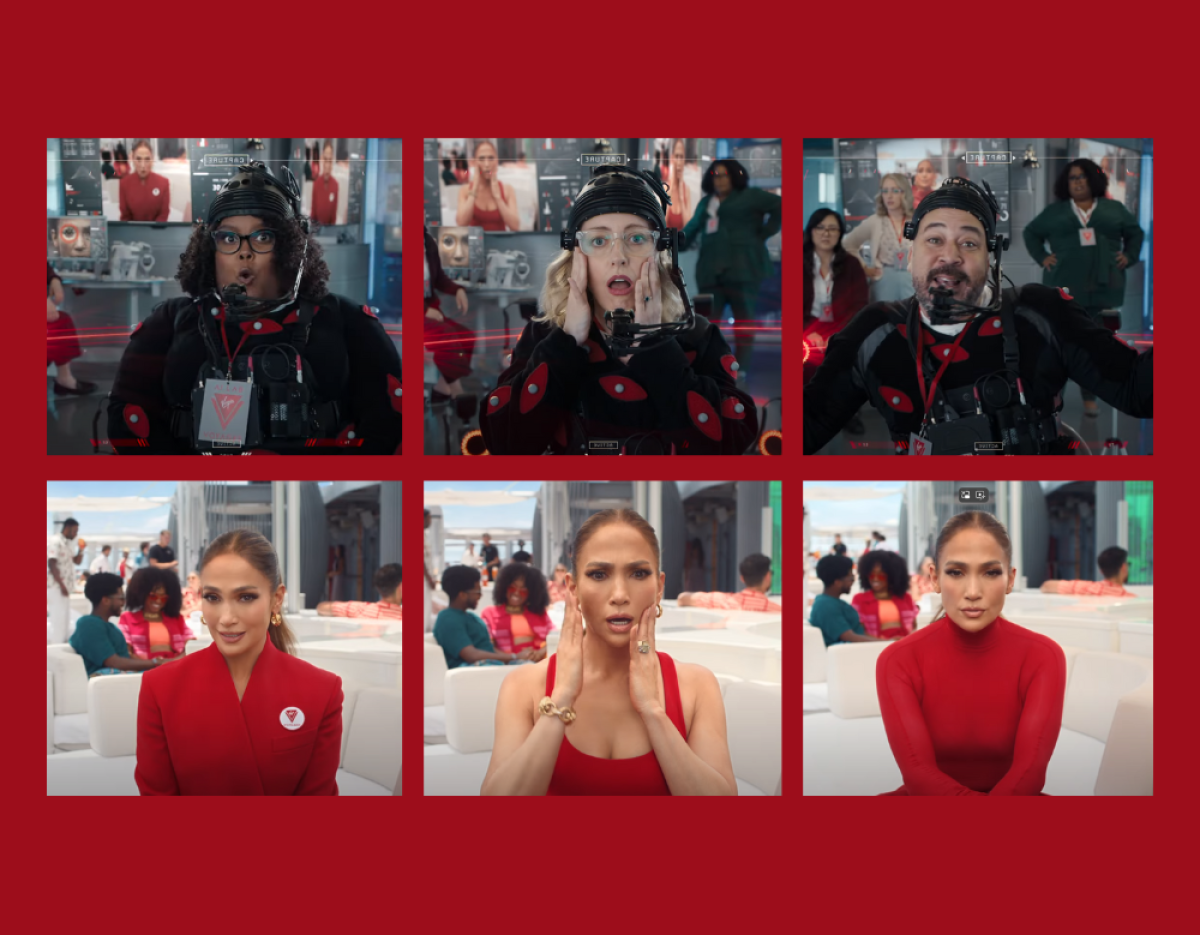Virgin Voyages flirts with AI, but is it committed?

AI is here, but brands are unwilling to go all in, and J-Lo’s recent outing with Virgin is further proof of this uneasy détente with our server-dwelling overlords.
Virgin Voyages’ new campaign welcomes another impeccably aged celebrity to adland, presumably fresh from the same cryogenic freezer Jennifer Aniston and Paul Rudd have slinked out of.
This particular comedy turn sees Jenny from the Block lending her image to an innovative artificial intelligence project. J-Lo is depicted becoming the first pioneering celebrity to inspire 'Jen AI,' a virtual incarnation. Her AI's mission? To entice travellers to set sail on the high seas. As part of this campaign, individuals can craft personalised invites using the Jen AI tool, accessible on VirginVoyages.com.
The commercial kicks off with a lounging J-Lo, whose voice is dripping with allure as she introduces herself as Virgin Voyages' chief celebration officer, beckoning viewers to join the adventure.
Yet, a sudden glitch disrupts the fantasy, revealing her true identity: she's actually 'Kyle.' It turns out that the real J-Lo is nowhere in sight; the woman on screen is, in fact, Jen AI—a nod to 'generative AI,' the emerging class of tools generating content based on user interactions.
Another woman then steps in to fulfill Kyle's role, hinting at the need for upgrades before Jen AI achieves perfection.
Our take
Doom-mongers, Hollywood scriptwriters and, well, journos like me, have long cast a squinted eye at AI, in the same way that fish were a bit cynical about nets when they were first introduced in 8300BC.
But, while our cold-blooded, slippery chums might’ve had a point, the threat of AI on us human creatives still feels a bit like the Millennium Bug, or Dr Dre’s Detox album: it could drop any minute, but somehow it doesn’t.
“Ah”, you might say, “but this very ad you just referenced is proof that AI is upon us”. Well, not really: it’s more proof that the idea of AI is upon us. And indeed, several ads have dealt with AI recently, but hardly embraced it:
Dove did quite the opposite, in fact, and actively took a bold stand against it.
Red Cross, meanwhile, has stressed that AI is not needed, as real life can be horrific enough.
And, while AI has been used in creative works, it tends to be as part of a scene that either features no humans (whose jobs might’ve otherwise been called on), or to make a vivid point for a good cause: like in this Uncommon advert, or in this campaign by Hijinks to highlight the tragedy of natural disasters.
Other times, AI is used out of curiosity/novelty, or to extol its virtues for human good, like say, improving our exercise habits, or for one-off artistic experiments.
So, while it’s true that AI has been looming large over Adland, its job-culling, career-ending, humanity-melting effects are being studiously avoided.
Meanwhile, a backlash (subconscious or otherwise) is emerging against the movement.
A return to the simple life has taken ads by force of late.
Need proof?
Check out this KLM offering extolling the slower pace and carbon-saving benefits of train travel, or this Heineken advert compelling us to get rid of our smartphones, or this Sharpie campaign encouraging us to get away from our screens and embrace a bit of good old-fashioned creativity.
To caveat all this: I have no doubt that we will soon see a plethora of AI ads and creative works complete with no human actors or even back-end creatives taking part. And, it’s probable that we’ll even embrace AI versions of songs with our favourite singers being entirely absent.
But, I’m not so sure that the reason AI isn’t more in our faces is purely out of a mission to not hurt our collective feelings.
No matter how hard AI tries, the human element is, by definition, what’s always missing, and this is no small hurdle – and indeed, the redundant simile of a hurdle is significant here: because the point of a hurdle is that there’s a sense of jeopardy, and a chance that, heaven forbid, a human vulnerability might be exposed.
A large part then, of the appeal of a real-life actor, singer, director, or dare I say, writer, is the story behind their success, and the very human experiences that underlie their art’s role in theirs, and indeed ‘our’ collective life story.
But then again, maybe I’m just fishing for compliments.

If you enjoyed this article, you can subscribe for free to our weekly email alert and receive a regular curation of the best creative campaigns by creatives themselves.
Published on:





